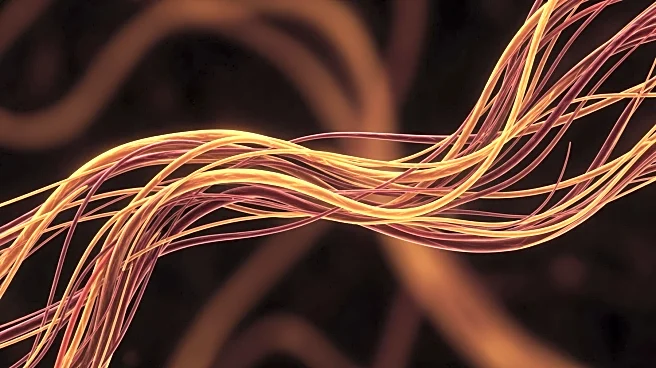What's Happening?
Research has revealed that IL-33, a cytokine released during liver resection, promotes the growth of intrahepatic cholangiocarcinoma (iCCA) by activating cancer-associated fibroblasts (CAFs). The study
found that IL-33-positive cells and myoCAFs are significant risk factors for intrahepatic recurrence. IL-33 stimulation leads to the upregulation of cytokines, particularly IL-6, which enhances the proliferation and migration of iCCA cell lines. The findings suggest that targeting IL-33 and IL-6 pathways could be a potential therapeutic strategy for managing iCCA.
Why It's Important?
The discovery of IL-33's role in facilitating iCCA growth through fibroblast activation provides new insights into the tumor microenvironment and potential therapeutic targets. Understanding the mechanisms of cytokine interaction in cancer progression can lead to the development of targeted treatments, improving patient outcomes. The study highlights the importance of cytokine regulation in cancer therapy and may prompt further research into cytokine inhibitors as a treatment option for iCCA.
What's Next?
Future research may focus on developing therapies that target IL-33 and IL-6 pathways to inhibit iCCA growth. Clinical trials could be conducted to evaluate the efficacy of cytokine inhibitors in managing iCCA. Collaboration between researchers and pharmaceutical companies may accelerate the development of targeted treatments. The findings may also lead to the exploration of similar mechanisms in other types of cancer, broadening the scope of cytokine-targeted therapies.











